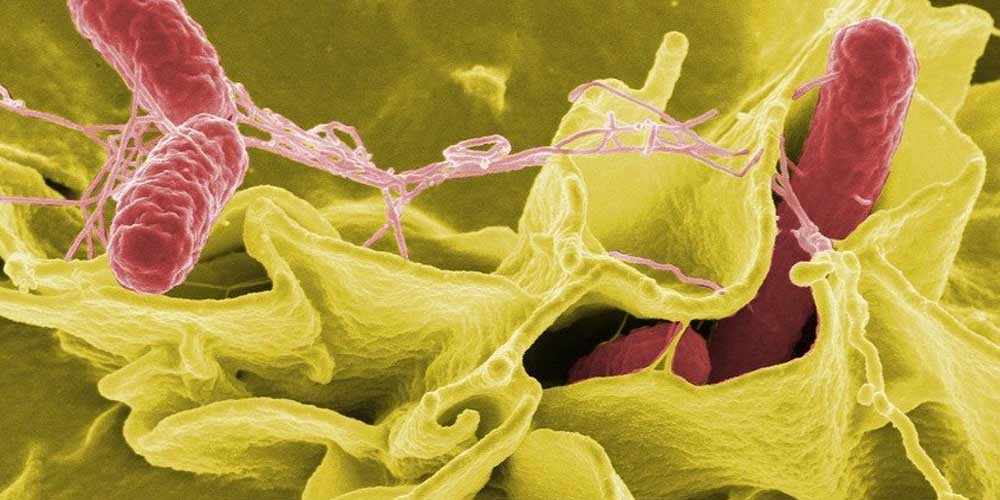
Salmonella or Listeria monocytogenes can cause your business closure
30 Jul 2019Recent cases of food poisoning (in 2019) due to Salmonella and Listeria show that appeared in the media have highlighted the importance of the control and analysis of pathogens (Listeria monocytogenes and Salmonella) and the consequences for consumers and companies in the food sector. They have been serious cases, like 5 dead from eating sandwiches in the hospital in the UK, 5 dead by consuming trout and smoked salmon or French Government stopped the production of a cheese company after finding Listeria in their products.
According to EFSA, 2,480 cases of listeriosis infections and 93,583 outbreaks of were reported in the European Union in 2017. (data published in the Report on trends and sources of zoonoses, zoonotic agents and foodborne outbreaks).
Cases of food poisoning by Listeria monocytogenes
- In 2019, products handled by the company Les fromages de la Brie in France were the cause of the death of a woman after consuming a product made with raw milk, and a pregnant woman lost her baby after consuming one of its cheeses, contaminated by Listeria. The Ministry of Agriculture removed all raw and pasteurised milk from the company and halted production.
- In 2019, the company The Good Food Chain, one of the largest producers of packaged sandwiches in the United Kingdom, was involved in the case of the five people who died in a hospital in the United Kingdom. Subsequently, The Food Standards Agency (FSA), has ruled out the company as being the cause of the outbreak, and according to its investigations, one of its suppliers must be the cause of the Listeria strain. Although it was exonerated of responsibility, the company halted production and broke its supply contract with the UK’s National Health Service, or NHS, and other major companies have broken supply contracts with The Good Food Chain, including Manchester United football club.
- In 2014, the Danish meat producer Joern A Rullepoelser AS caused the death of 12 people through its manufactured products due to an outbreak of Listeria caused by contaminated cold meats, in particular rolled sausage (a typical Danish product). The consequences were devastating for the company as the Danish Ministry forced the withdrawal of all the company’s products and ordered its closure.
Consequences of a pathogen contamination for food industry operators
The consequences of an outbreak of Listeria monocytogenes on Les fromages de la Brie, The Good Food Chain and Joern A have had fatal consequences, to the point of having to close the company as a result of an administrative sanction. The main points that will be affected in the event of a crisis on food poisoning will be:
- Sanctions deriving from human consequences: In the event of deaths or hospitalisations due to food poisoning, public bodies will issue administrative sanctions, in addition to removing all processed products that have been related to the pathogen outbreak, and will paralyse the production of the affected plant or plants. The French company Lactalis, at the centre of a health controversy in late 2017 and early 2018 after its Craon factory was targeted as the focal point of salmonellosis that affected some 38 babies, was not authorised to sell powdered infant milk produced there for 8 months.
- Economic costs: A pathogen crisis entails many different serious financial implications: it decreases the share value, limits the growth of the business, decreases sales, makes an important investment necessary to alleviate the situation. The peanut processing company, Peanut Corporation of America (PCA), involved in a national outbreak of salmonellosis that caused the death of nine people in 2009, ended up declaring bankruptcy. The company had increased its workforce by 90 workers the previous year and had closed the year with a turnover of 25 million dollars.
- Reputational cost: The damages that are most difficult to recover from are not those mentioned previously, but rather the enormous reputational cost that results from a brand or company’s public exposure to contamination with pathogens. A bad reputation has a domino effect that completely affects the business. Despite being exonerated from the Listeria outbreak, The Good Food Chain, named earlier in this article, has announced that it has ceased production and that 125 of its workers have lost their jobs due to the serious impact of the crisis.
What should an agro-food company do to prevent contamination from pathogens?
Even when carrying out the controls established by law and sending samples to laboratories for analysis, these companies have had positive samples. We have to strengthen pathogen controls and companies must carry out their own controls. If a company does its own analysis, there is a lower risk of suffering contamination.
Listeria and Salmonella are bacteria that can cause death. We have to carry out strict controls of all products, analyse different control points and random areas onsite, as well as raw materials. The only way to minimise risk is through extensive analysis.
Zeulab has developed a new device that allows us to detect the presence of Salmonella or Listeria in food samples in a simple and 100% safe way. The new system incorporates all phases of the analysis into a single disposable device, facilitating and streamlining the results internally and minimising losses in the event of contamination.
Thanks to this auto-control system, if you also wish to increase your company’s food safety you can now request a free sample of MicroLab Listeria or Salmonella and perform pathogen analysis to avoid contamination.



